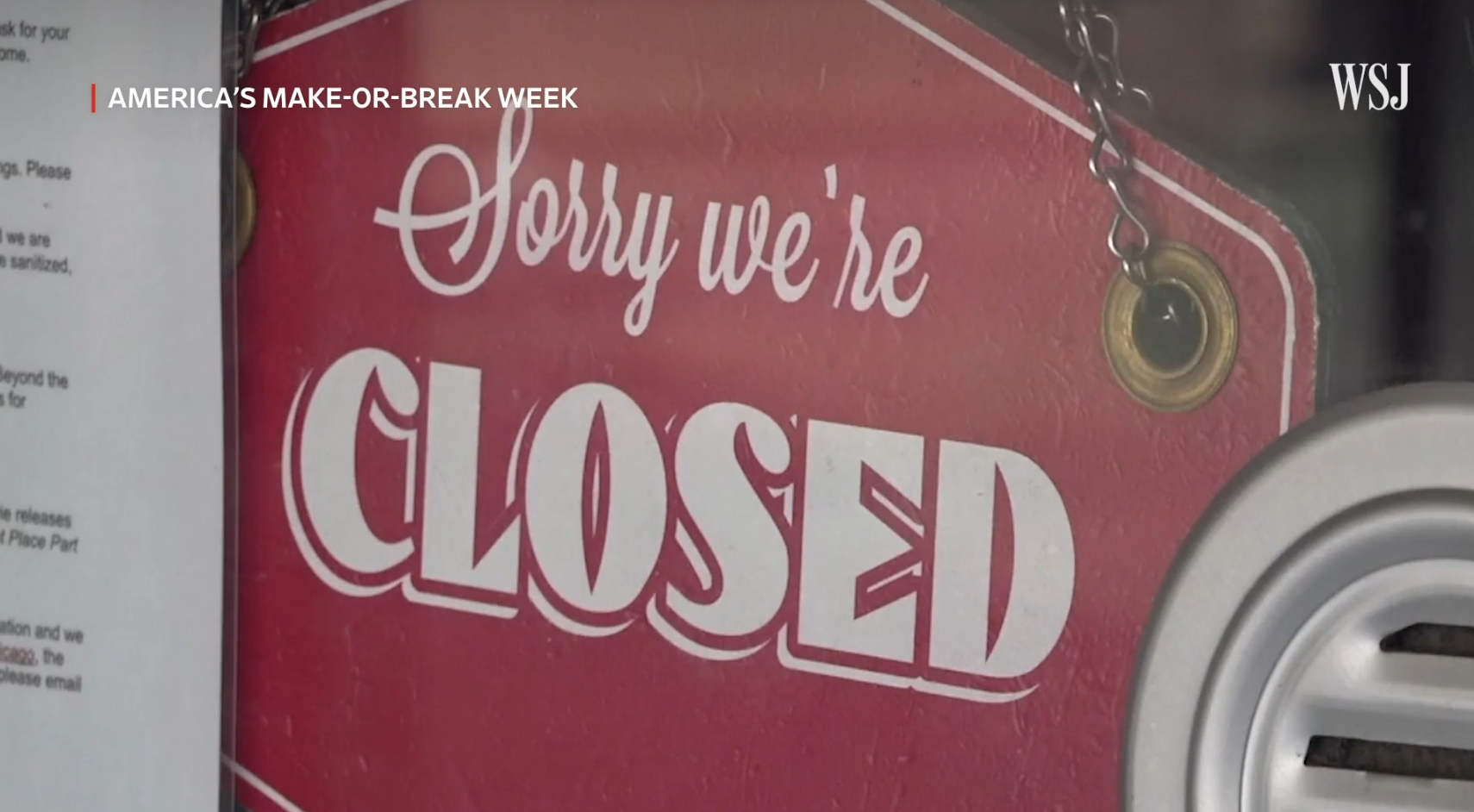Willie Briggs, a volunteer with Catholic Charities, helped with the distribution of pantry items at a San Francisco food bank last week.ALEJANDRO LAZO/THE WALL STREET JOURNAL
By Ian Lovett and Alejandro Lazo – THE WALL STREET JOURNAL
SAN FRANCISCO—Catholic Charities of San Francisco is still open. The century-old organization is offering free meals for seniors, conducting outreach to the city’s homeless and running two residential-care facilities. But the revenue streams that usually subsidize those programs, such as youth camps, athletic leagues and transportation services, have been deemed nonessential by the local government amid the coronavirus pandemic and ordered to close. As a result, Catholic Charities projects it will run a deficit of at least $3.5 million by June.
“I don’t know how long we’ll be able to keep serving those vulnerable people,” said Jilma Meneses, the organization’s chief executive.
The coronavirus outbreak is ravaging nonprofit organizations’ finances, threatening many of their usual revenue sources at a time when demand for their services is skyrocketing. Fundraisers are being postponed or canceled. Donations have fallen as much as 75%. Businesses and events that nonprofits operate to earn money, ranging from opera performances to autism therapy centers, have been shuttered. Layoffs have already begun.
“It’s devastation,” said Rick Cohen, chief operating officer for the National Council of Nonprofits, which represents thousands of groups across the country. A coalition of more than 100 nonprofit groups appealed to Washington for help, requesting that $60 billion be earmarked specifically for them in the federal economic-rescue bill. In the bill that President Trump signed Friday, however, no money was earmarked specifically for the sector, though nonprofits would be eligible to apply for federal loans.
The lost revenue for nonprofits comes in many forms. The YMCA, with most of its facilities shut down, expects to lose $400 million in revenue in April alone among its 2,600 locations nationwide.
Elizabeth Pantojas 52, center, pushed her cart of food donations from St. Stephen Outreach in Brooklyn, NY. PHOTO: WONG MAYE-E/ASSOCIATED PRESS
Habitat for Humanity closed its home-goods stores, which generate about $500 million annually, and has mostly stopped building homes with volunteers and selling them to needy families, which accounts for 28% of the organization’s revenue. Some of Habitat for Humanity’s 1,200 U.S. chapters could be forced to close within months, said Jonathan Reckford, the organization’s CEO.
Still, many charities feel compelled to stay open, even if they are operating at a loss. Catholic Charities of San Francisco hosted its regular monthly food distribution to about 500 seniors at Temple United Methodist Church last week, despite its ballooning budget deficits. Seniors this week showed up wearing face masks to collect peanut butter, pasta and other pantry items.
Huang Qiao Jun said he had been coming to the distribution center for 11 years. He didn’t have a plan if the food bank shuts down.
Sixty-seven of Catholic Charities of San Francisco’s employees have been furloughed, and officials said more will likely follow. Because it employs more than 500 people, Catholic Charities of San Francisco would be excluded from the interest-free small business loans, which would be forgiven in many cases, outlined in the stimulus bill. The National Council of Nonprofits unsuccessfully pushed to have the 500-employee cap removed.
Larger organizations would be eligible for loans at up to 2% interest, which would not be forgiven, and the bill also includes a tax incentive for charitable gifts up to $300. More than 12 million people work in the nonprofit sector.
In Canada, where there are roughly 170,000 registered charities and nonprofits that employ 2.4 million people, many nonprofits have only about two weeks of operating cash, said Jay-Ann Gilfoy, CEO of Vancity Community Investment Bank. “Some of the big organizations will survive, but the local organizations won’t,” she said.
At Los Angeles First United Methodist Church, which serves a low-income population downtown, most of the congregation’s revenue comes from its parking. Located near the Staples Center, where the Lakers play, it normally brings in $49,000 a month. This month, it will be closer to zero, said Mandy Sloan McDow, the senior minister at the congregation.
“I am so, so concerned, because we have some reserves, but not much,” said Rev. McDow. The congregation opened briefly on Sunday to make sure homeless members got a meal.
Latino Leadership, a small nonprofit in Florida, laid off all 33 of its employees this week and shut its center for children with autism.]
Marucci Guzman, the executive director, said they didn’t have reserve funds to stay closed for multiple months.
A no-interest federal loan would help the organization pay rent and keep the lights on, Ms. Guzman said, but wouldn’t allow her to bring back many of the therapists she employs, who aren’t allowed to offer telemedicine under Florida law.
“We would have been celebrating five years of our autism center in April,” Ms. Guzman said, choking up. “Instead of having cupcakes, we’re giving out furlough letters.”
—Vipal Monga in Toronto contributed to this article.

